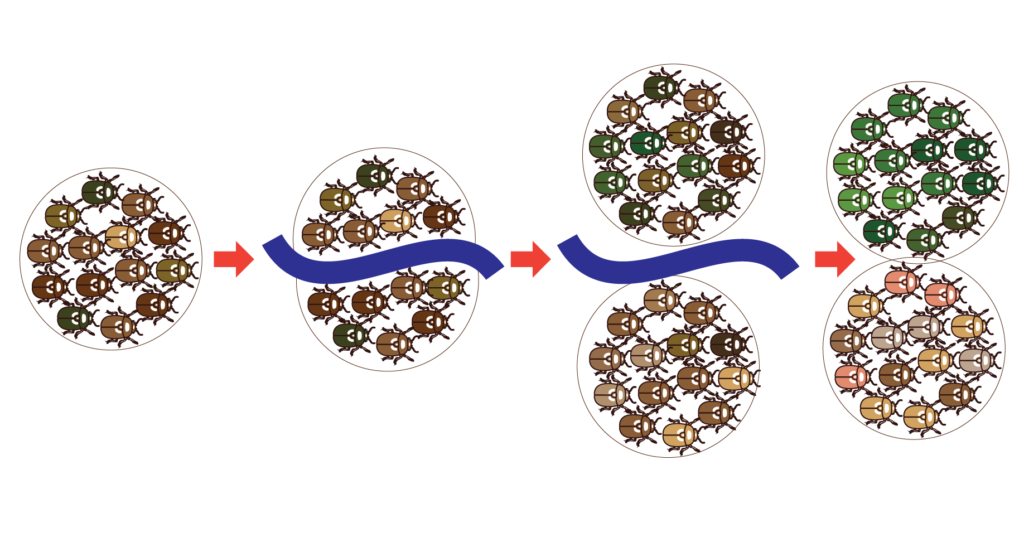 Allopatric speciation is just a fancy name for speciation by geographic isolation, discussed earlier. In this mode of speciation, something extrinsic to the organisms prevents two or more groups from mating with each other regularly, eventually causing that lineage to speciate. Isolation might occur because of great distance or a physical barrier, such as a desert or river, as shown below.
Allopatric speciation is just a fancy name for speciation by geographic isolation, discussed earlier. In this mode of speciation, something extrinsic to the organisms prevents two or more groups from mating with each other regularly, eventually causing that lineage to speciate. Isolation might occur because of great distance or a physical barrier, such as a desert or river, as shown below.
Allopatric speciation can occur even if the barrier is a little “porous,” that is, even if a few individuals can cross the barrier to mate with members of the other group. In order for a speciation even to be considered “allopatric,” gene flow between the soon-to-be species must be greatly reduced — but it doesn’t have to be reduced completely to zero.
Learn more about speciation:
- A closer look at a classic ring species: The work of Tom Devitt, a research profile.
- Sex, speciation, and fishy physics, a news brief with discussion questions.
Teach your students about speciation:
Find additional lessons, activities, videos, and articles that focus on speciation.

